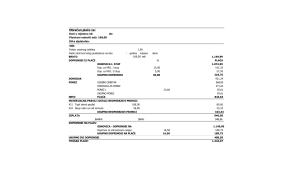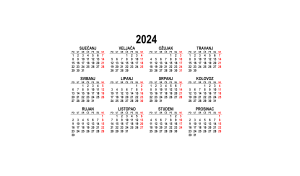Knowing how to write a resume or a CV (curriculum vitae) is probably the most important part of your job search because reading it is the first step in selection. Sometimes everyone wonders how to find a new job or maybe change careers. Based on a well-written CV, you will pass to the next round of selection, and maybe even enter the last round right away. Accordingly, if your CV is poorly written, it will probably not be considered.
Prepare your resume and get a new job!
There are workshops on writing good resumes, hundreds of thousands of tips and tricks are written, and some people specialize in helping others write resumes. However, the most important person in writing a resume is you, because you know yourself best. To help you successfully find a job, in the next part of the text we will give some advice on what to do and what to avoid.
Chronological order of resumes
A common mistake when writing resumes is that they are written chronologically from the first job to the last job. This is contrary to how every employer wants to know the candidate. It must not happen to you that the first job on your resume is a job in a photocopier shop that you worked at during the summer 10 years ago. As a rule, one wants to study one’s experience from the current back to the beginning. The employer is most interested in your current or last workplace.
If the resume is written chronologically, you will force the person reading it to read it from the end to the beginning, which is not good. Therefore, follow the principle of reverse chronological order when listing jobs.
How to write a resume: naming jobs
One thing that often varies in resumes is how the job titles are listed. For the history of work experience, the name of the workplace, the employer and the period of work are required. However, candidates sometimes mention the name of the workplace and the employer in one sentence, so work experience can seem unclear. Especially if the employer’s name is some generic word. Try to separate the name of the employer from the name of your workplace. Also don’t forget to put from when to when you worked at that position in parentheses using months, not years.
How to write a resume: your education
It is very important that the most recently completed education according to the initial one be presented first. If you are currently studying, but you are about to graduate, indicate the expected month of graduation. It is essential that you write the year you completed your education in order to establish a timeline of your career path.
All volunteering, scholarships, student exchanges, summer and professional schools, education and other similar qualifications should also be listed if possible as part of the education items. Keep in mind that your extracurricular activities are often more important to employers than your grades because they speak more about your ambition and diligence.
The resume should not wander too much
In your quest to get a job, you’ll probably be tempted to list every job you’ve ever held and every job you’ve held. However, this can result in a resume that is too complicated. Keep in mind that when applying for a job, people often read three-digit numbers of CVs and applications and do not have time to study every detail in your CV. Moreover, an overly detailed resume can create the impression that you do not know how to prioritize what is important in communication or you do not know how to present what is crucial in your life path.
If you are applying for a job in a company, it is unimportant that you have worked in a movie theater for some time. Almost everyone has done some odd jobs to earn money and survive, but that doesn’t mean you have to write that you worked as a receptionist for a month. Moreover, too many short jobs could lead an employer to think that you have problems working with others, poor work habits, or lack career goals or motivation. You definitely want to avoid that.
Each resume should be adapted to the advertisement for which it is applied for, and accordingly list only a selection of relevant experiences, taking care not to leave long gaps in employment.
How to write a resume: length
In reference to the previous topic, your resume can be too long for several reasons. One example is that you have done a lot of short-term jobs, for example since your student days. In that case, adjust your resume so that your list of work experience is a selection from it, and leave out unimportant jobs like two months of working in a souvenir shop or cafe. You will be asked about possible gaps in employment at the job interview and only if they are significantly long (longer than several months).
Another reason why resumes are too long is that candidates, in their desire to prove their qualifications, list all the duties and responsibilities they have had. This often results in each job being the beginning of a paragraph or two in which the candidate lists absolutely every activity he or she has done. Your potential employers don’t care if you changed light bulbs at work or photocopied paperwork, some of the activities are taken for granted. Only basic skills and activities should be listed. There should be no more than a few per workplace.
Look for additional advice on finding a job and open vacancies at Štoradiš.hr, and you can also seek employment through Lugera.
Do you want to find your ideal job?
Author: Goran Mihelčić





